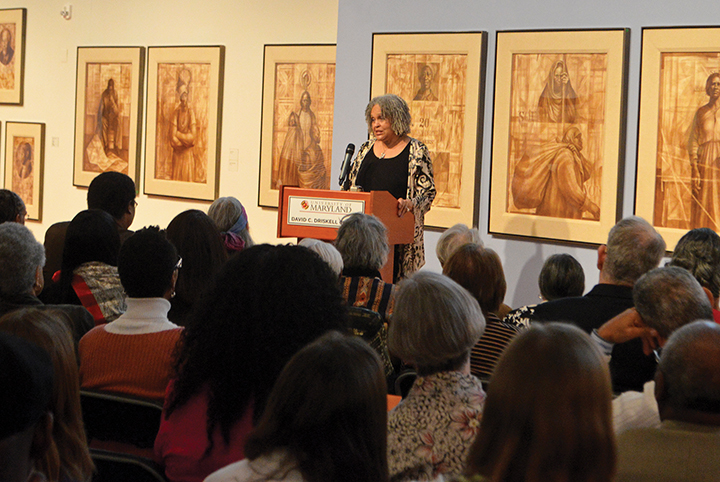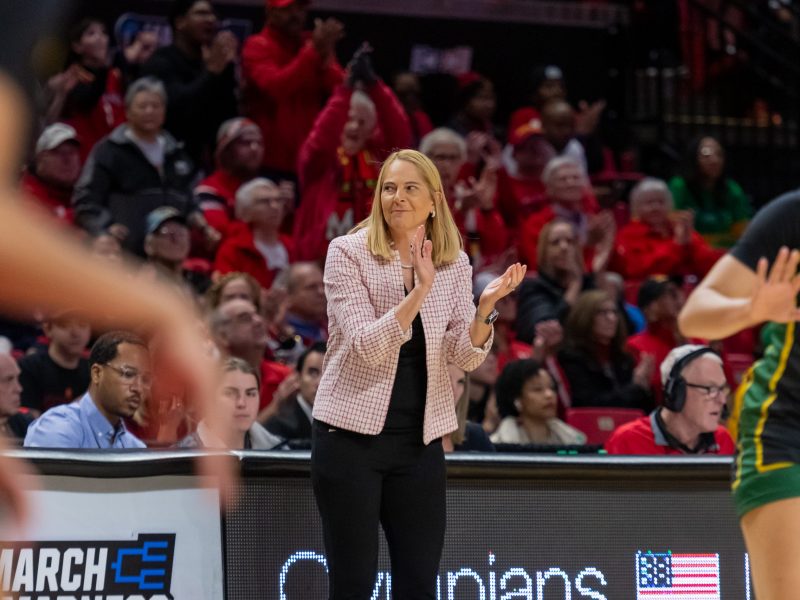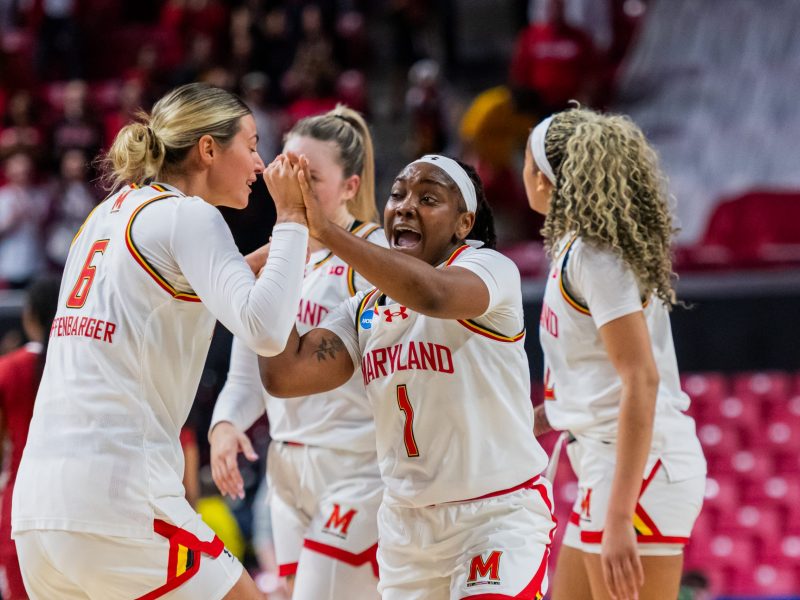
Award-winning journalist Dr. Charlayne Hunter-Gault speaks at the Driskell Center in Cole Field House Wednesday, April 10.
Fifty years after President Lyndon B. Johnson signed the Civil Rights Act of 1964 to ban discrimination based on qualities such as race, skin color and gender, President Obama will deliver an address in Austin, Texas, today to commemorate the anniversary.
This university also recognized the passing of the legislation with a lecture by Charlayne Hunter-Gault, author, award-winning journalist and civil rights activist. She spoke last night to more than 100 people about her experiences during the civil rights movement at the David C. Driskell Center in Cole Field House.
The center invited Hunter-Gault as part of an annual series, “Distinguished Lecture in the Visual Arts in Honor of David C. Driskell,” which aims to educate attendees about the achievements of black people, said Dorit Yaron, the center’s deputy director.
In 1961, Professor emeritus David C. Driskell stared at a black-and-white television screen, watching Hunter-Gault and fellow student Hamilton Holmes walk through a crowd of protesters to register for classes as the University of Georgia’s first black students. The two were denied admission from the university several times and eventually were able to enroll after a U.S. District Court judge ruled they were qualified to attend nearly a year and a half later.
“She and Hamilton Holmes walked with grace and dignity, and they integrated the University of Georgia,” Driskell said in an introductory speech. “And they made it a different place, and it’s been a different place ever since.”
In Hunter-Gault’s lecture, “From the Jim Crow South to the Horizons: A Journalist’s Journey,” she discussed her experiences as a part of the civil rights movement, from being the first black woman to enroll in the University of Georgia to working as a journalist in Johannesburg.
After graduating third in her high school class, she and Holmes visited Georgia State.
“We looked at Georgia State’s curriculum and said, ‘This ain’t good enough,’” Hunter-Gault said.
They wanted to go to the University of Georgia instead, which worried people because they couldn’t provide the pair as much protection there. On Jan. 9, 1961, they registered for their first semester of classes.
On Hunter-Gault’s third day at that university, students rioted outside her dorm. Chants of “two-four-six-eight, we don’t want to integrate” filled the air, she said, and one student threw a rock through her window.
“About three weeks later, most students hadn’t spoken to me. The professor hadn’t spoken to me,” she said. “I was the invisible woman.”
She received an A-plus on her first paper — about a piece of artwork she admired — and several students asked to see it after. She said she considered art a “door-opener” and “game-changer” in her life after this experience.
While working as a journalist in South Africa, Hunter-Gault said, she “saw up close the scars that apartheids agents had wrought on so many people.”
When Nelson Mandela was freed, Hunter-Gault wanted to immediately go see him. But her co-worker was hesitant because it was very expensive, and they couldn’t guarantee an interview with him. Indignant, she said, “If anyone can get an interview with Nelson Mandela, I can,” and she did.
Hunter-Gault ended her lecture with two lessons she learned from high school students she once interviewed.
The first student told her: “Everybody to somebody is the other, and that racism will always be with us.”
The second student’s aunt was part of the civil rights movement. The student told Hunter-Gault she was shocked by what her aunt’s struggle; before, the student didn’t realize how big the movement was. Many of her high school friends, the student said, didn’t know about the history or didn’t seem to care because it happened so long ago.
“I wanted to understand and share that history with others so we can all understand where we came from to keep us from going back,” the second student told Hunter-Gault.
Rachelle Browne said she was captivated by the lecture.
“I appreciated that she gave us such a broad overview of her entire life,” Browne said. “It made it very engaging. At times I thought I was with her in that dorm room.”
For Adanna Paul, Hunter-Gault gave her insight into the past.
“When she was just talking about what she went through when she was in college, that wasn’t that long ago, and it was surprising to know that that happened just so recently, it really brought into perspective to me that wasn’t so long ago,” Paul said.



